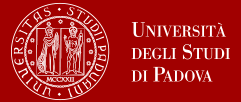
Calls for Abstracts: Creative Protest: Creativity, politics & social movements
The social and cultural studies of creativity - defined as "an intentional configuration of cultural and material elements that is unexpected for a given audience" (Godart et al., 2020) - are examples of a burgeoning field of research. Scholars in this tradition illuminate the role and importance of structures, institutions, context, and audience, while analyzing and approaching creativity as a collective phenomenon with cultural, psychological, socioeconomic, and political relevance. The sociological unpacking of creativity is directly related to concepts such as innovation, surprise, diffusion, and imitation, to name a few. Although the latter concepts have been recognized as some of the crucial factors for the resonance of social movements and activist campaigns, the link between creativity and (informal) politics, activism and social movements has mostly been explored implicitly and indirectly.
The collection Creative Protest aims to extend and connect existing discussions in both the sociology of creativity and social movement studies. To do so, it seeks original empirical and theoretical contributions that explicitly apply the defining elements of creativity to the study of (informal) politics, collective action, and social movements in order to explore how actors use and play with language, temporality, space, tactics, aesthetics, technology, affects, and ideas, among other things, to surprise their opponents, targets, policy makers, and general audiences; to transform existing practices; to challenge dominant definitions of doing politics; to change living/political/social conditions; to reach new audiences; to circumvent regime obstacles; and/or to adapt to new circumstances.
Gender Campus invites 300-words abstracts for a journal article of approximately 8,000 words, which, if selected, will be submitted as part of the special issue to an international journal (TBA) aiming for publication in late 2025/2026. For further information and abstract submission, please contact: z.sirocic@uni-graz.at<mailto:z.sirocic@uni-graz.at>.
Key Dates and Deadlines
Abstract submission (including short bio): July 01, 2024
Notification on acceptance of abstracts: July 15, 2024
Full versions of manuscripts due (Invitation to submit a full paper is not a confirmation of publication): November 01, 2024
Review process & final manuscript submission: TBA
For more information click here.






